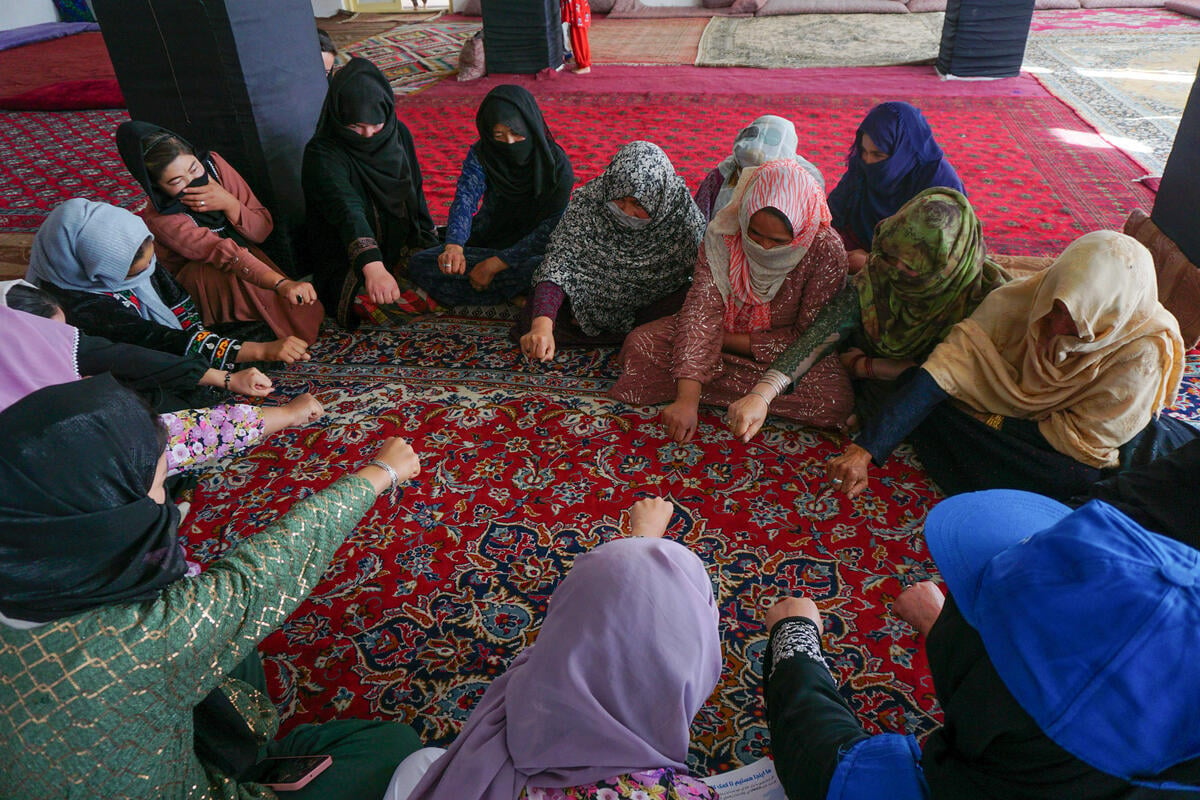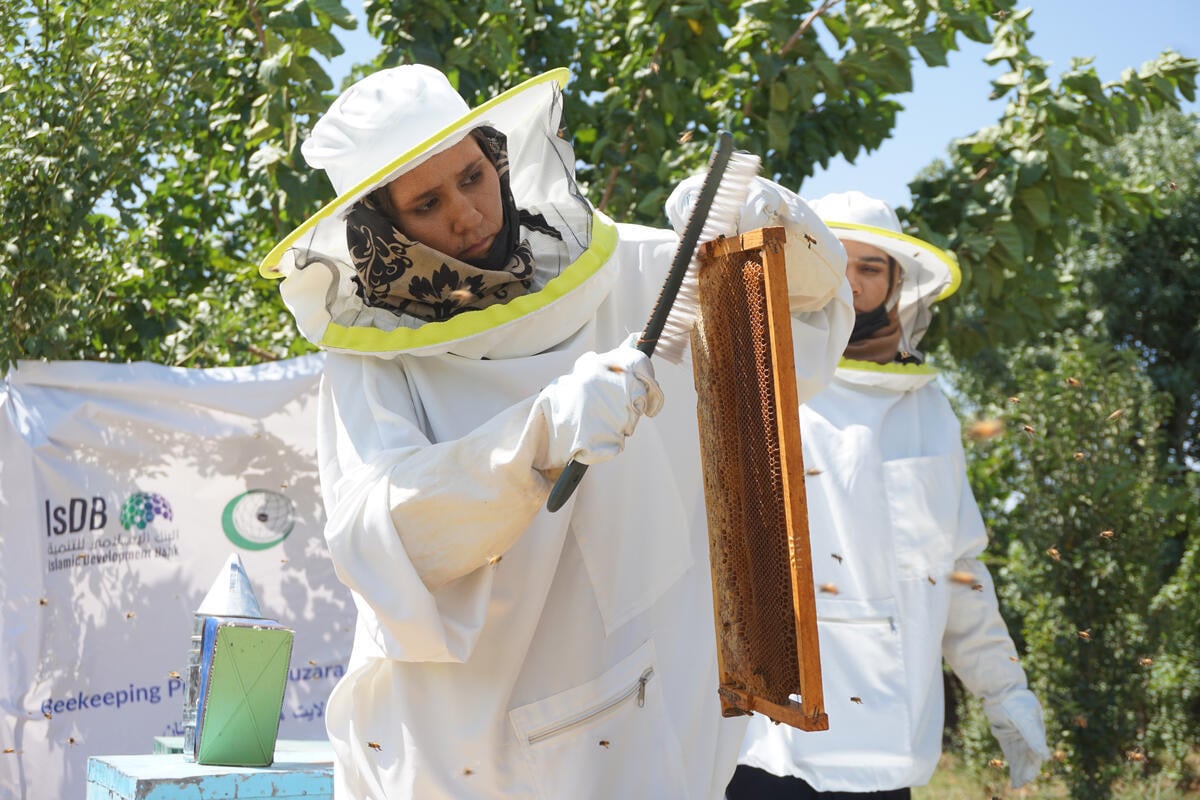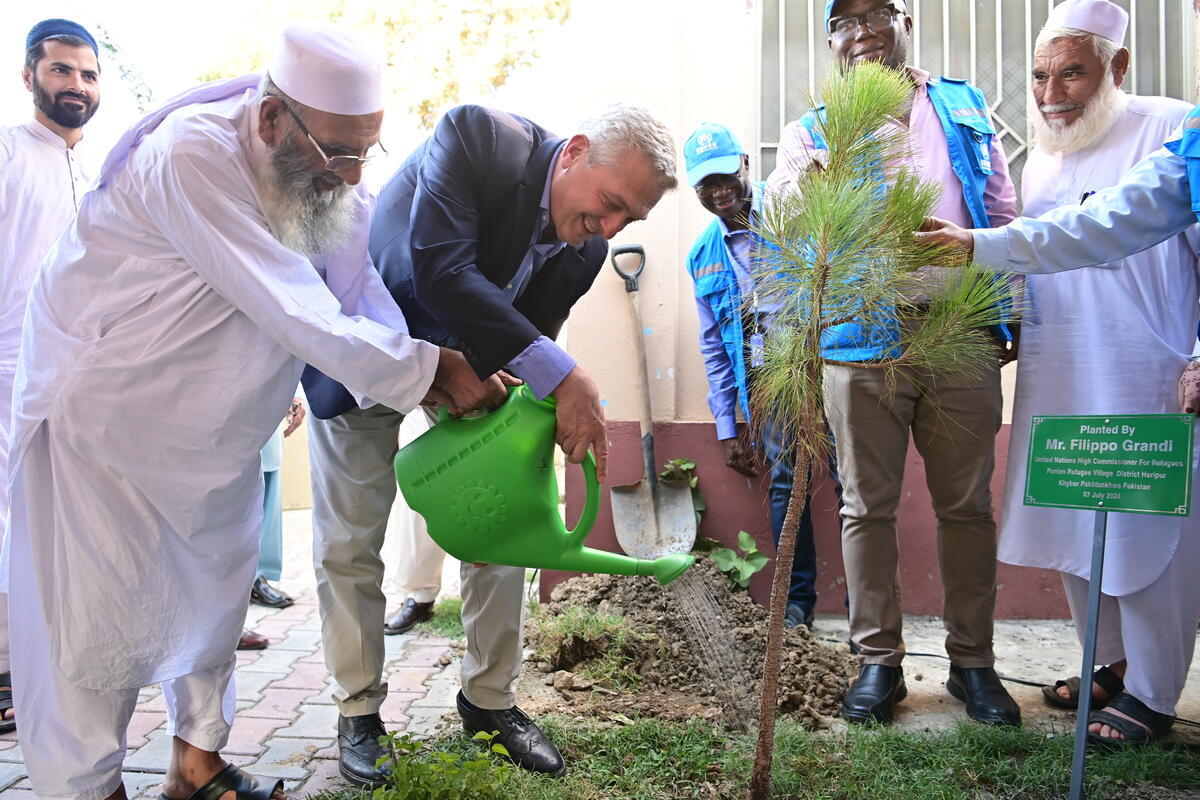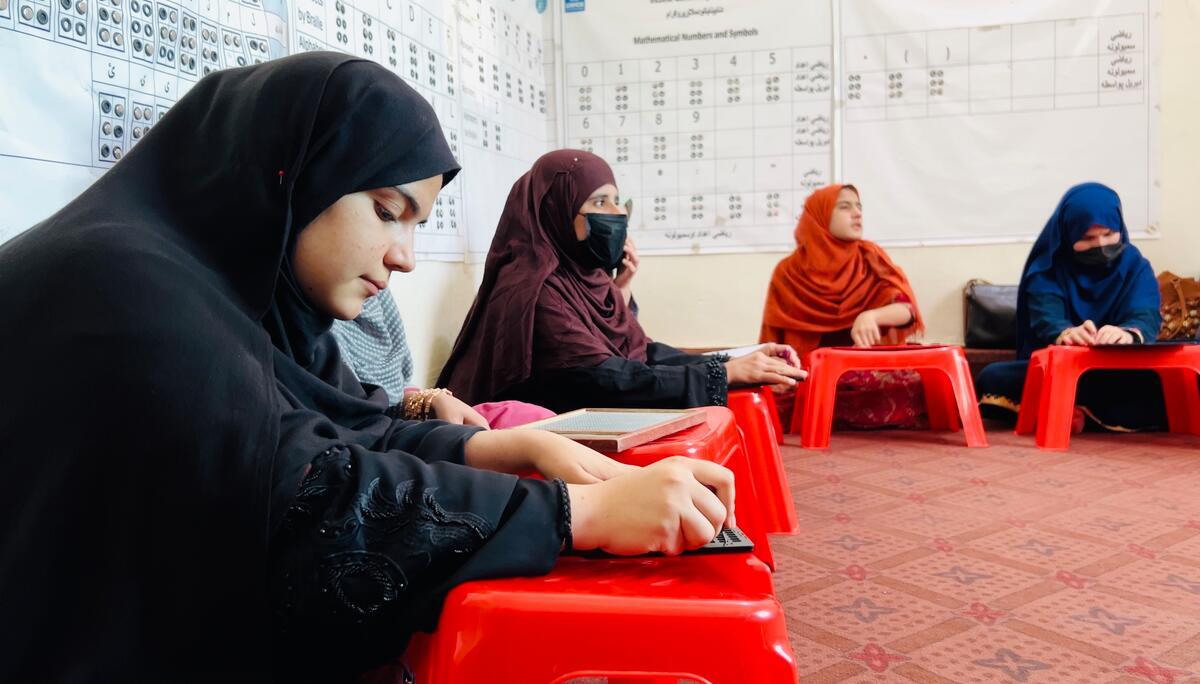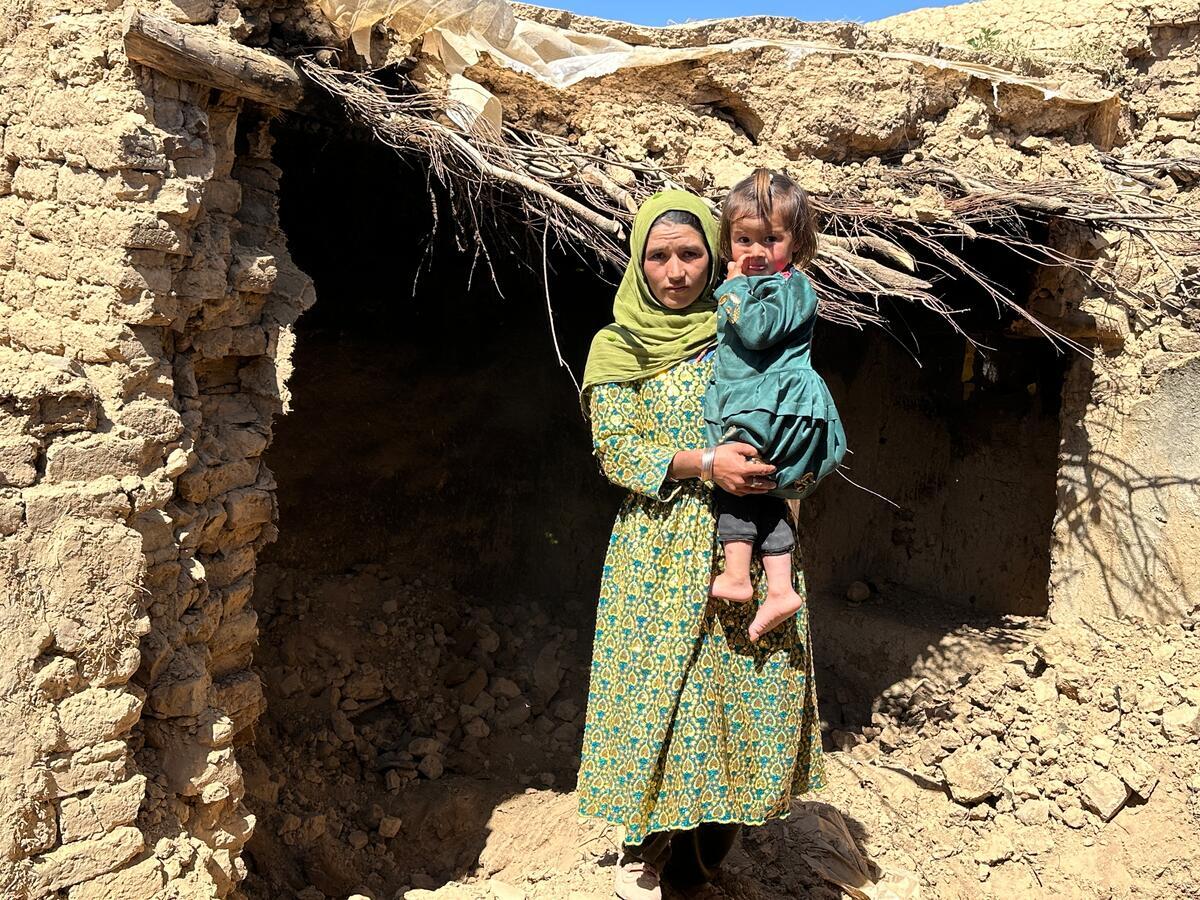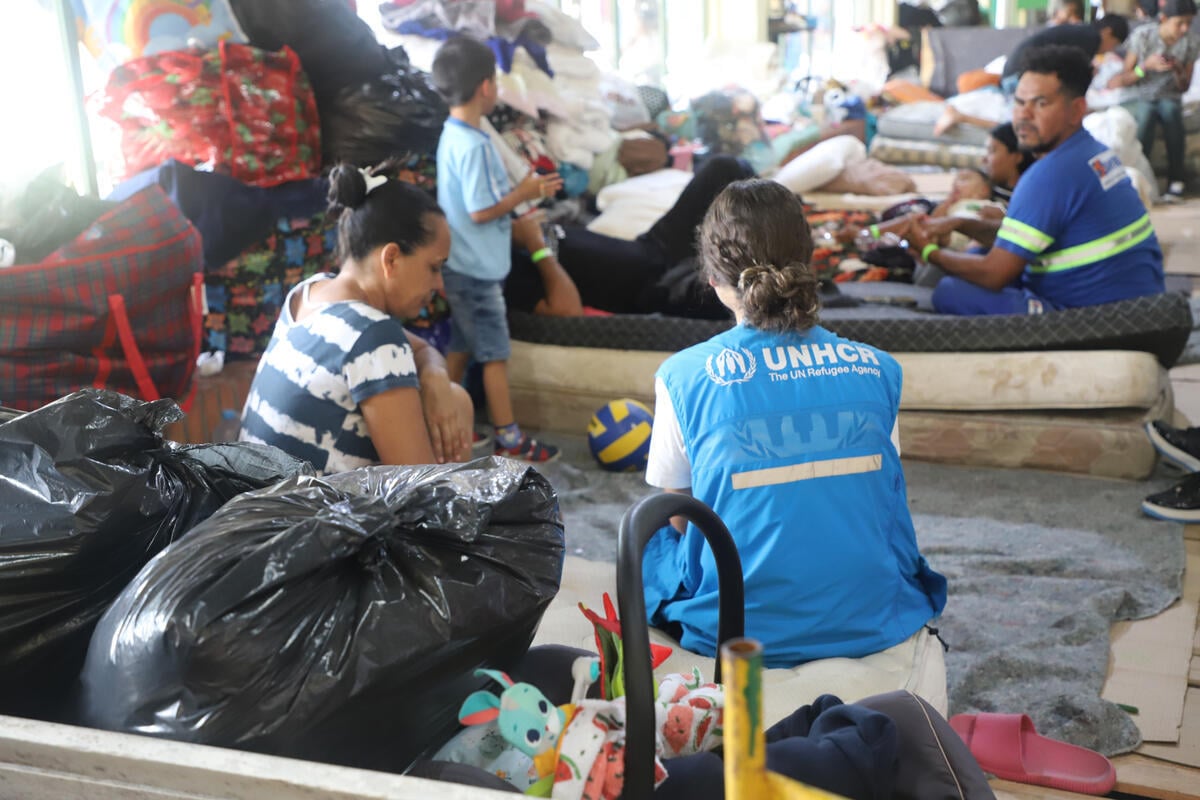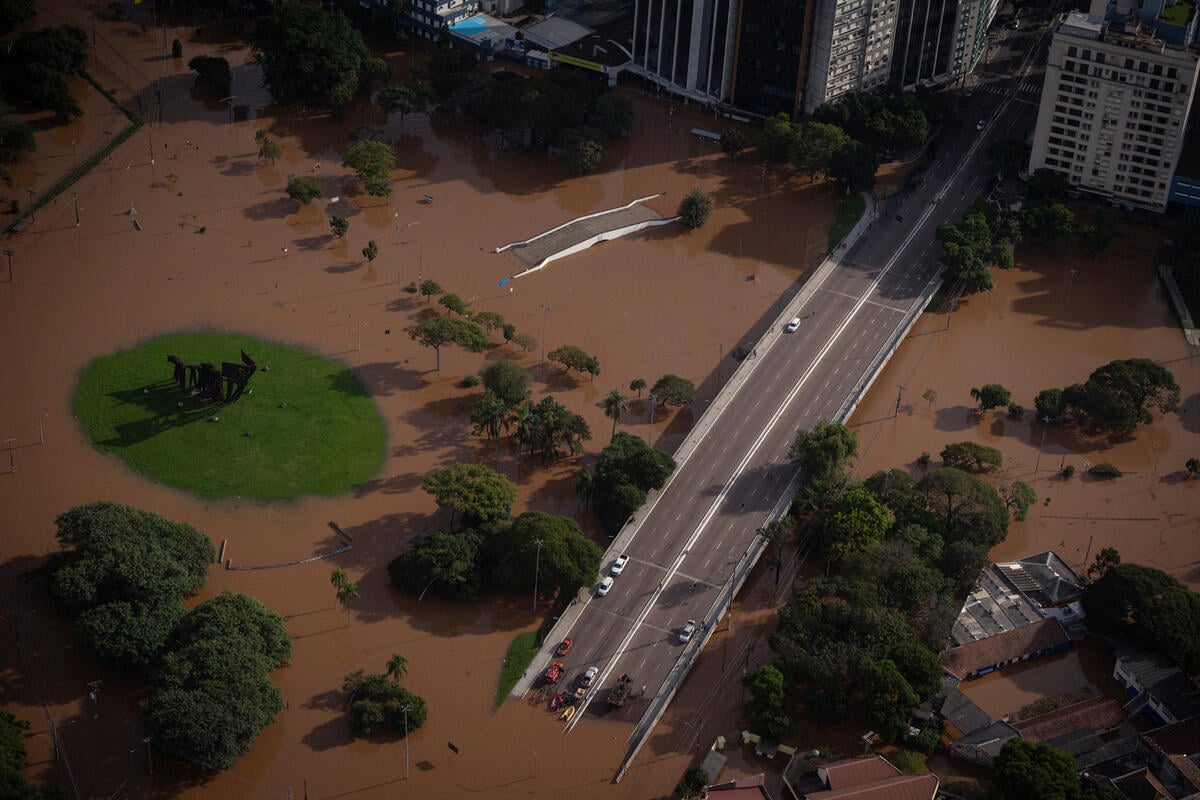Afghanistan: shelter initiative home progress
Afghanistan: shelter initiative home progress
Afghans are now rapidly completing work on their homes funded under our shelter initiative. So far more than 65 percent of the 52,000 homes we're funding this year have been completed. The 34,000 finished homes are housing more than 170,000 people who arrived back in Afghanistan this year but lacked adequate housing.
An additional 16,000 homes are currently under construction and should be finished before the end of the year, putting a total of a quarter million Afghans under their own roofs before the end of 2003, roughly 95 percent of our goal. Some 2,000 units are in the planning stages and should be finished early next year.
Under our shelter programme, needy returnee families identified by our partners receive tool kits and construct walls up to shoulder height before they receive roofing timbers, doors and window frames that we've purchased from suppliers in Europe, Africa and south Asia. Participants also get a stipend of between $50 and $100 that compensates them for the loss of income during construction or to pay labourers if they cannot do the work themselves.
In addition to our shelter initiative we are also contributing to the UN's joint winter preparedness operation. UNHCR is stockpiling winter items such as tents, blankets, plastic sheets, kerosene stoves, and fuel for 45,000 Afghans who may need emergency assistance during the coming months. Distribution has begun in all regions, but the security situation in the eastern and southern Afghanistan has delayed some deliveries.
In Herat's Maslakh displaced persons camp, we've begun distributing an additional two plastic tarpaulins and two blankets to some 16,000 Afghans. Kerosene distribution is also underway. Another some 15,000 Afghans in western Afghanistan's Ghor, Badgis, Herat and Farah provinces will also benefit from aid, including two blankets, a $25 cash grant for fuel, two plastic tarpaulins, detergent and a lantern. They will also receive four metres of hygiene cloth, a plastic mat, shovel, hoe and collapsible jerry can. Some 500 tents are also being pre-positioned in case of a winter emergency.
The number of returning refugees has remained at modest levels since the end of Ramadan and the closure of our repatriation centres in eastern and southern Afghanistan since the murder of our French colleague, Bettina Goislard, in Ghazni two weeks ago. Following her killing we temporarily closed our offices in areas bordering on Pakistan and withdrew international staff. We want to see concrete steps taken by the two states and to improve security for humanitarian workers before resuming operations in the border region. The High Commissioner will also raise our concerns regarding the precarious security situation in parts of Afghanistan during his discussions next week in Washington.
More than 610,000 Afghans refugees have returned home so far this year, including 340,000 from Pakistan and 270,000 from Iran, while others have gone back from 19 other states as far distant as Mexico, Brazil, Cambodia and Malaysia.

